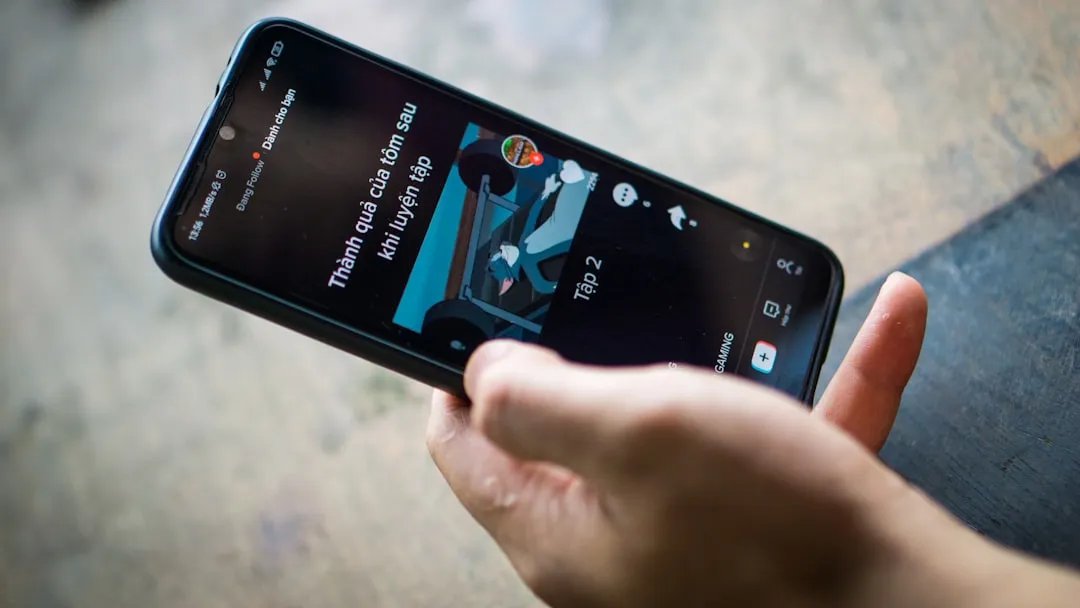WhatsApp has been the world's go-to messaging platform for over a decade, but it has always had one fundamental limitation that separates it from other social platforms: you need someone's phone number to connect with them. That is about to change. After years of development and user requests, WhatsApp is preparing to launch usernames, a shift that could reshape how we connect and how we shield our privacy on the platform.
Meta is preparing for a significant WhatsApp update that will finally unveil this highly anticipated username functionality. This is not a minor tweak, it is one of the most significant privacy-focused updates the messaging giant has attempted since launch. The feature has moved through long development cycles and beta testing, with WABetaInfo reporting that it has reached its final development stage. The timeline is no longer guesswork, the feature is expected to launch globally in 2026, and businesses must adopt the new system by June of that year.
How WhatsApp usernames will actually work
Think Instagram or Telegram handles, then add WhatsApp's bent toward security and phone number privacy. Users will be able to create distinctive identifiers that enable messaging, calling, and contact searching without displaying phone numbers. On other platforms usernames are often about branding. Here, the goal is simpler and more practical, hide your number when you do not want to share it.
The rules aim for flexibility without chaos. Usernames must contain at least one letter and can include lowercase letters, numbers, periods, and underscores. To curb abuse, handles cannot start with "www.", and all-number or symbol-only names are out. Length runs from 3 to 30 characters, and usernames that start or end with a period or include two periods in a row will be blocked.
There is a clever bit in the pipeline, the reservation tool. This allows users to secure their preferred handles before the official rollout. It appears in settings and serves two purposes, it reduces impersonation risks and gives early adopters first crack at names they love. Call it staking your claim before the gold rush.
In practice, usernames create a privacy layer that feels seamless. Once you set one, it appears in chats and group messages instead of your phone number for people who have not saved your contact. When someone updates their username, WhatsApp will display a system message in the chat notifying you of the change. Transparent, yet still in your control.
The privacy revolution this brings to messaging
This goes beyond hiding digits. It tackles everyday safety and boundary issues we all bump into. The update aims to enhance privacy when communicating with unfamiliar individuals or businesses. Picture the freelancer chatting with a new client, the marketplace buyer arranging a pickup, or someone swapping details at a conference. Before, you had to hand over your number. Now, you do not.
The business angle is even more compelling. The system creates a safer environment for transactional interactions. Coordinating with a contractor, fielding customer inquiries, or handling marketplace deals becomes simpler when your number stays private, yet conversations keep moving.
For businesses, influencers, and public-facing organizations, it opens new possibilities for brand recognition and safer public communication channels. Think sharable, memorable identities that do not expose sensitive details. A restaurant might promote "@bistrodowntown" for reservations, a consultant could use "@techstrategy_alex" for clients, an organization could run "@nonprofitsupport" for community outreach.
Context matters here. Telegram has offered usernames for years, but WhatsApp brings scale and end-to-end encryption to the table, as reported by WABetaInfo. That means privacy-centric communication is not a niche feature, it reaches over two billion people who already rely on the app for sensitive chats.
What businesses need to know about the transition
The transition is firm and time-bound. All businesses utilizing the WhatsApp API must update their systems to support usernames by June 2026. This is not a slow migration. Expect technical prep, integration updates, and workflow tweaks.
Meta has been paving the way with the Business-Scoped User ID, or BSUID. This allows authenticated enterprises to communicate securely with customers without revealing phone numbers. In other words, businesses have been using a preview of the coming world, both technically and experientially.
Under the hood, the changes are broad, but controlled. Meta has updated its developer documentation to include integration guides, best practices, and encryption protocols for seamless communication. At the same time, WhatsApp engineers have been modifying core platform infrastructure to support the new feature while maintaining complete end-to-end encryption. The message is clear, added functionality without sacrificing the security standard that businesses already trust.
Rollout will not be a single switch flip. The upgrade is expected to roll out in stages starting in 2026, with businesses leading the adoption before expanding to all users. That gives enterprises time to adapt and lets Meta validate at scale. If your company relies on WhatsApp today, this is the moment to review integrations and plan updates.
What this means for WhatsApp's future
Usernames fit into a larger shift in how WhatsApp sees itself. The development comes as part of WhatsApp's broader effort to enhance user experience and expand functionality. The app recently added built-in translation features, supporting six languages on Android and over 19 on iPhone, a hint that WhatsApp is moving from simple texting to fuller communication tools.
The timing lines up neatly. Translation lowers language barriers for global chats, and usernames remove the phone number barrier for first contact. Together, they make international communication easier, from personal use to professional and commercial conversations.
Competition will notice. By adding features like real-time translation and customizable usernames, WhatsApp is clearly evolving into a more versatile and globally connected communication platform. This is not just a Telegram catch-up. It is a push to define what privacy-first, at-scale messaging should look like.
With privacy, personalization, and convenience at the forefront, the upcoming username feature could mark the next significant leap in how over three billion monthly users interact on the world's most popular messaging service. The 2026 window gives room to get it right and gives users and businesses time to prepare.
If you want your preferred handle, keep an eye on beta builds where the reservation tool may show up first. This change will reshape how we think about privacy, professional communication, and digital identity on messaging apps. WhatsApp is aiming to be the platform that gets modern communication right.



























Comments
Be the first, drop a comment!